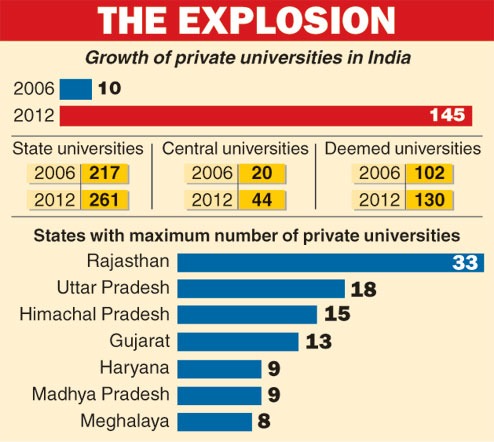
Supreme Court Orders Nationwide Scrutiny of Private and Deemed Universities in India
Court expands student grievance into full audit of higher education institutions
Centre, states, and UGC asked to disclose governance, funding, and compliance details
By Our Legal Correspondent
New Delhi: November 26, 2025:
The Supreme Court of India has placed the entire ecosystem of private and deemed universities under unprecedented judicial scrutiny. What began as a simple student grievance over a name-change request at a private university in Noida has now expanded into a nationwide inquiry into how these institutions were created, financed, and regulated.
Also Read: IBBI Issues New 2025 Guidelines to Speed Up Insolvency Professional Appointments Across India
Background of the Case
The matter originated when a student filed a writ petition against Amity University, alleging that despite submitting all necessary documents, the institution refused to update her name in its records. While the issue appeared minor, the Supreme Court bench of Justices Ahsanuddin Amanullah and N.V. Anjaria saw it as symptomatic of deeper governance concerns in private higher education. The Court converted the case into a public interest litigation (PIL), widening its scope to examine the functioning of all private and deemed universities across India.
Court’s Directions
The Court has directed the Centre, all states, Union Territories, and the UGC to file personally signed affidavits detailing:
- The legal provisions under which these universities were established.
- The governance structures and who controls them.
- The financial benefits or concessions granted by governments.
- Whether their claims of being “no-profit” institutions match actual financial practices.
- The regulatory frameworks ensuring compliance with academic and financial standards.
This is not routine paperwork. The Court’s demand for sworn affidavits from top officials signals a serious audit of India’s private higher education sector, which has grown rapidly over the past two decades.
Growth of Private Universities
India has witnessed a boom in private universities since the early 2000s. With rising demand for higher education and limited capacity in public institutions, private players stepped in to fill the gap. Today, India has over 400 private universities and more than 125 deemed universities, many of which claim to operate on a “no-profit” basis. However, critics argue that several institutions function like commercial enterprises, charging high fees while offering limited transparency in governance and finances.
Also Read: CBDT Advisory: Taxpayers Must Disclose Foreign Assets and Income Under CRS & FATCA for Transparency
Concerns Raised
The Court’s scrutiny reflects long-standing concerns about:
- Commercialization of education: Many private universities are accused of prioritizing profit over academic quality.
- Regulatory loopholes: Deemed university status has often been granted without strict checks, leading to questions about credibility.
- Student grievances: Issues such as arbitrary rules, lack of accountability, and poor grievance redressal mechanisms are common.
- Quality of education: While some private universities maintain high standards, others face criticism for inadequate faculty, infrastructure, and research output.
Impact on Stakeholders
The Court’s order has wide-ranging implications:
- For students: Greater transparency could improve trust and accountability in private institutions.
- For universities: They will need to justify their governance models and financial practices.
- For regulators: The UGC and state governments will face pressure to strengthen oversight.
- For policymakers: The inquiry may lead to reforms in how private universities are established and monitored.
Expert Opinions
Education experts believe the Court’s intervention could be a turning point. “This is a rare moment when the judiciary is asking fundamental questions about the governance of private universities,” said one education analyst. “If implemented properly, it could lead to a more transparent and accountable system.”
Others caution that the inquiry must balance regulation with autonomy. “Private universities play a crucial role in expanding access to higher education. Excessive regulation could stifle innovation,” noted another expert.
Possible Outcomes
The Court’s scrutiny could result in:
- Stricter guidelines for granting deemed university status.
- Mandatory disclosures on finances and governance.
- Improved grievance redressal mechanisms for students.
- Greater accountability of state governments and the UGC in monitoring institutions.
Broader Context
This development comes at a time when India is aiming to become a global education hub under the National Education Policy (NEP) 2020. The NEP emphasizes quality, equity, and accountability in higher education. The Supreme Court’s inquiry aligns with these goals, ensuring that private institutions contribute positively to India’s education landscape.
Conclusion
The Supreme Court’s sweeping scrutiny of private and deemed universities marks a historic moment in Indian higher education. What started as a student’s grievance has now evolved into a nationwide audit, potentially reshaping the governance and credibility of private institutions. As the Centre, states, and UGC prepare their affidavits, the future of India’s private university sector hangs in the balance.
Also Read: India Marks Constitution Day: Remembering Ambedkar and 76 Years of the Nation’s Guiding Document